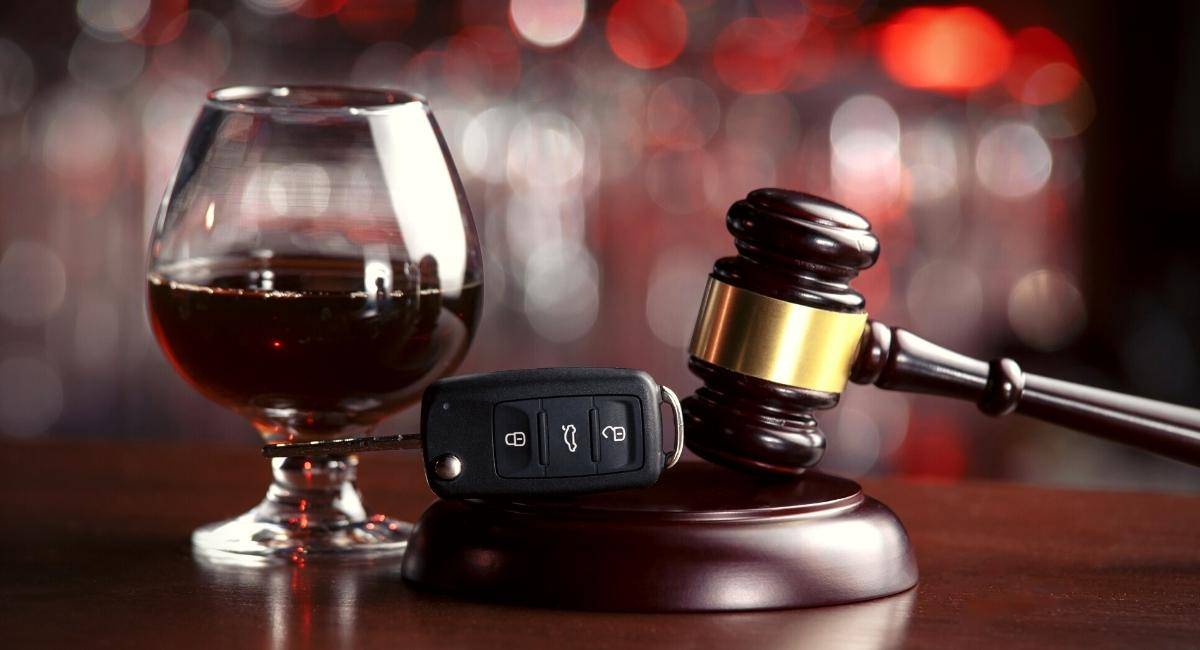If you were arrested for DWI in Collin County or any of the surrounding areas, it is important that you talk with an attorney at the Law Offices of Richard C. McConathy about defenses regarding the DWI Process needed for your case.
Your attorney must conduct a thorough investigation as early in the case as possible. Even small details can have a big impact on how the case is resolved.
DWI Process Defense Lawyer in Plano, Allen, Frisco, and McKinney, TX
If you were arrested for DWI then your defense will depend, in part, on the type of testing that was conducted in your case.
Types of testing in a DWI case can include:
- Refusal to submit to testing;
- Breath Test;
- Blood Test; and/or
- Urine Test.
Many challenges can be brought in the case depending on the type of testing conducted and the procedures followed to ensure the accuracy of the result.
It is your right to refuse a DWI test. Doing so denies the prosecutor critical evidence against you. However, in some cases, law enforcement may conduct a “no refusal” campaign, in which case officers will obtain a warrant to force you to give blood.
If you refuse a DWI test or fail one, though, your driver’s license will be administratively revoked. You have 15 days from your arrest to request a formal hearing to fight the revocation.
The DWI process in Texas can be long and complicated. If you have been arrested for DWI in Plano, Allen, Frisco, or McKinney, it is important to understand the steps involved in the process and your rights.
Here is a brief overview of the DWI/DWI process in Texas:
- Arrest and Booking: The first step in the DWI/DWI process is the arrest. The arresting officer will ask you to step out of your vehicle and perform a series of field sobriety tests. If the officer believes that you are intoxicated, you will be arrested and taken to the police station.
- Administrative License Revocation (ALR) Hearing: If you refuse to take a breathalyzer test or if your blood alcohol concentration (BAC) is 0.08% or higher, your driver’s license will be suspended automatically. You have 15 days to request an ALR hearing to contest the suspension.
- Arraignment: At your arraignment, you will be formally charged with DWI and will be asked to enter a plea of guilty or not guilty. If you plead not guilty, your case will go to trial.
- Pretrial Motions: Before your trial, your attorney may file pretrial motions to challenge the evidence against you. For example, your attorney may file a motion to suppress the results of your breathalyzer test if the officer did not follow proper procedures.
- Trial: If your case goes to trial, the prosecution will present its case first. The prosecution will call witnesses to testify about your arrest and the results of your BAC test. The defense will then have an opportunity to cross-examine the prosecution’s witnesses. After the prosecution has presented its case, the defense will present its case. The defense may call witnesses to testify about your character or to challenge the evidence presented by the prosecution.
- Verdict: After both sides have presented their cases, the jury will deliberate and return a verdict of guilty or not guilty. If you are found guilty, you will be sentenced by the judge.
- Sentencing: The sentence for DWI in Texas can vary depending on the facts of your case. For a first-time DWI offense, you could be sentenced to up to 180 days in jail, a fine of up to $2,000, and a driver’s license suspension of up to 1 year.

If you have been arrested for DWI, it is important to contact an experienced DWI attorney as soon as possible. An attorney can help you understand your rights and options and can represent you at all stages of the DWI process.
Do not speak to the police without an attorney present. Contact an experienced DWI attorney as soon as possible.
Be prepared to provide the attorney with all of the relevant information about your case. Follow the attorney’s instructions carefully.
By following these tips, you can increase your chances of a favorable outcome in your DWI case.
Defenses Against DWI Charges
If insufficient evidence exists in your case to prove DWI, then your attorney can file and litigate a motion to dismiss. If evidence was gathered in violation of constitutional provisions, state statutes, or regulations, then a motion to suppress might be filed.
Filing such motions is one of the most effective ways to fight the charges. Call the Law Offices of Richard C. McConathy to discuss your case with a qualified and experienced DWI defense attorney.
Defenses in DWI criminal cases include:
- Contesting blood testing readings with or without a warrant;
- Contesting breath testing readings;
- Failure to properly follow regulations to inspect, calibrate and maintain the machine;
- Malfunctions of the breath test machine;
- Mistakes made by the breath test operator or inspector;
- Fighting the license suspension in an administrative license revocation hearing; and
- Motions to Suppress for lack of reasonable suspicion or probable cause for the initial stop or arrest; Community Caretaking Function Exception; Corpus Delicti.
In a DWI case, chemical test results can be used to prove the intoxication component of the charge. However, there are a number of ways to challenge the accuracy of these results.
One way to challenge the accuracy of alcohol or drug test results is to argue that there was a flaw in the testing procedure. For example, if the test machine was not properly calibrated, the results could be inaccurate. Additionally, if the person administering the test did not follow the proper procedures, the results could also be unreliable.
Another way to challenge the accuracy of alcohol or drug test results is to argue that the results do not accurately reflect the amount of alcohol or drugs in the person’s system at the time of driving. This could be the case if the person had recently consumed alcohol or drugs, or if the person had a medical condition that could have affected the results of the test.
In addition to chemical test results, the officer’s testimony about the driver’s appearance and behavior can also be used to prove intoxication. However, there are a number of ways to challenge the officer’s testimony.
One way to challenge the officer’s testimony is to introduce witnesses who saw things differently. For example, if the officer testified that the driver’s eyes were bloodshot, a witness who was also present could testify that the driver’s eyes were not actually bloodshot.
Another way to challenge the officer’s testimony is to provide an explanation for the driver’s appearance or behavior that is consistent with non-intoxication. For example, if the officer testified that the driver was slurring his speech, the driver could testify that he had a cold that was causing his throat to be sore.
Field sobriety tests (FSTs) are often used by police officers to assess a driver’s level of intoxication. However, FSTs are not always reliable. There are a number of factors that can affect the accuracy of FSTs, such as the driver’s age, physical condition, and experience with FSTs.
If the defense can show that the FSTs were not administered properly or that the results of the FSTs were not reliable, the judge may be more likely to rule in favor of the defense.
If the police did not follow proper procedures when stopping or arresting you, you may have a good defense to a DWI charge. For example, if the police pulled you over without a legitimate reason, a judge may be more likely to suppress any evidence that was obtained as a result of the illegal traffic stop.
Additionally, if the police did not have probable cause to arrest you for DWI, the judge may also be more likely to suppress any evidence that was obtained as a result of the unlawful arrest. Police officers are generally required to give Miranda warnings to suspects who are in police custody.
Miranda warnings inform suspects of their right to remain silent and their right to have an attorney present during questioning. If a DWI suspect who is in police custody and has not been given Miranda warnings makes an incriminating statement in response to police questioning, the statement may not be admissible in court against the suspect.
There are a number of defenses that can be used to challenge a DWI charge. If you have been arrested for DWI, it is important to speak with an experienced DWI attorney to discuss your case.
Find A Collin County Attorney to Fight DWI Process | Law Offices of Richard C. McConathy
The information on this website is intended to help alleviate the concern that you have for yourself or a loved one going through this unfortunate event. However, it is only intended to provide general information. It is the unique details surrounding your situation that can make the difference in deciding your case’s outcome. An experienced DWI defense attorney can help guide you through this process.
To learn more about your defense options after a DWI in Collin County or the surrounding communities, call (469) 304-3422 or contact us online. Your consultation is free and will provide you with information on the charges you face, and the Texas DWI process, and highlight your most favorable legal strategies. With nearly a decade of experience, you can rest assured that your trust and future are in good hands.


